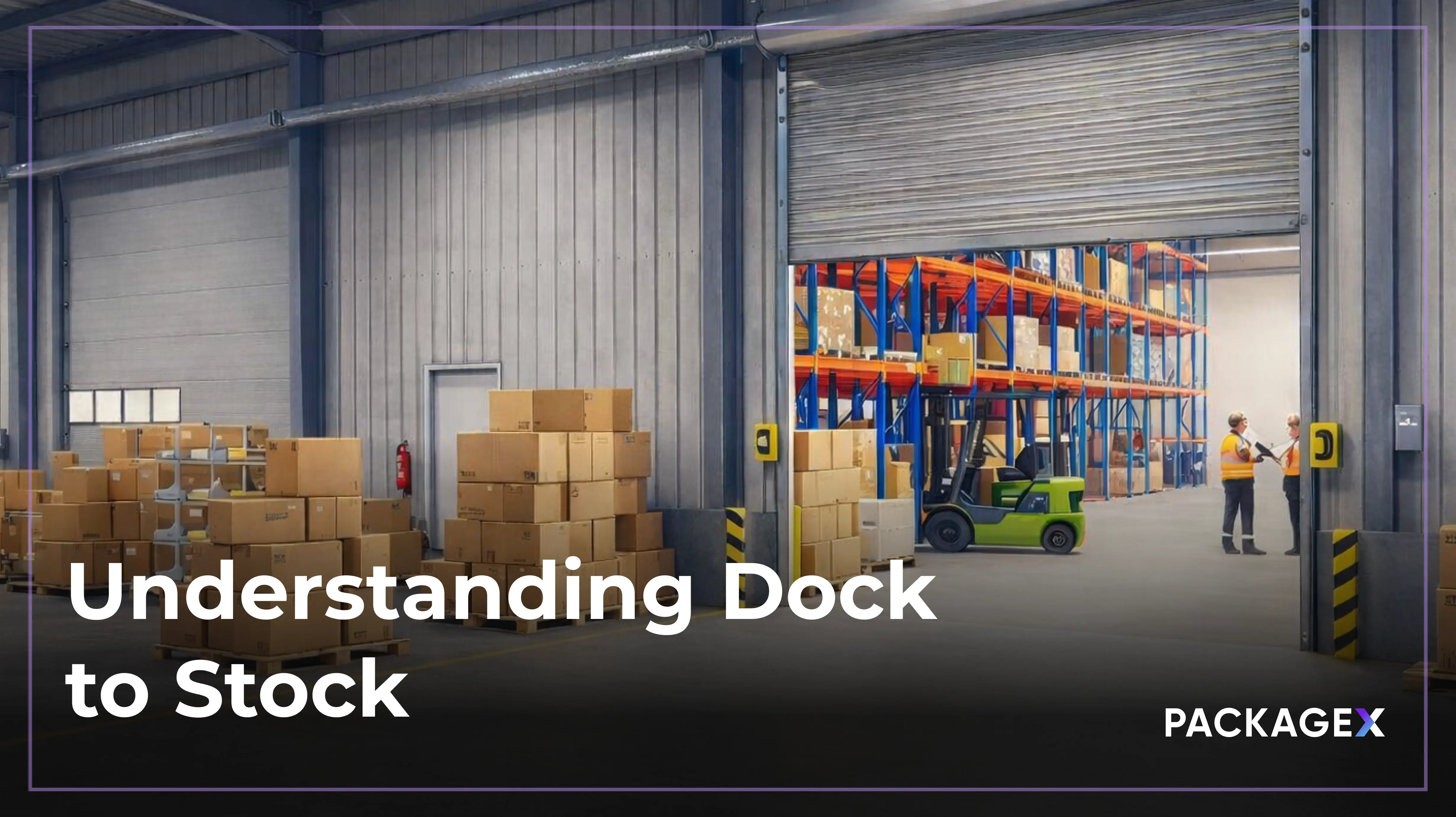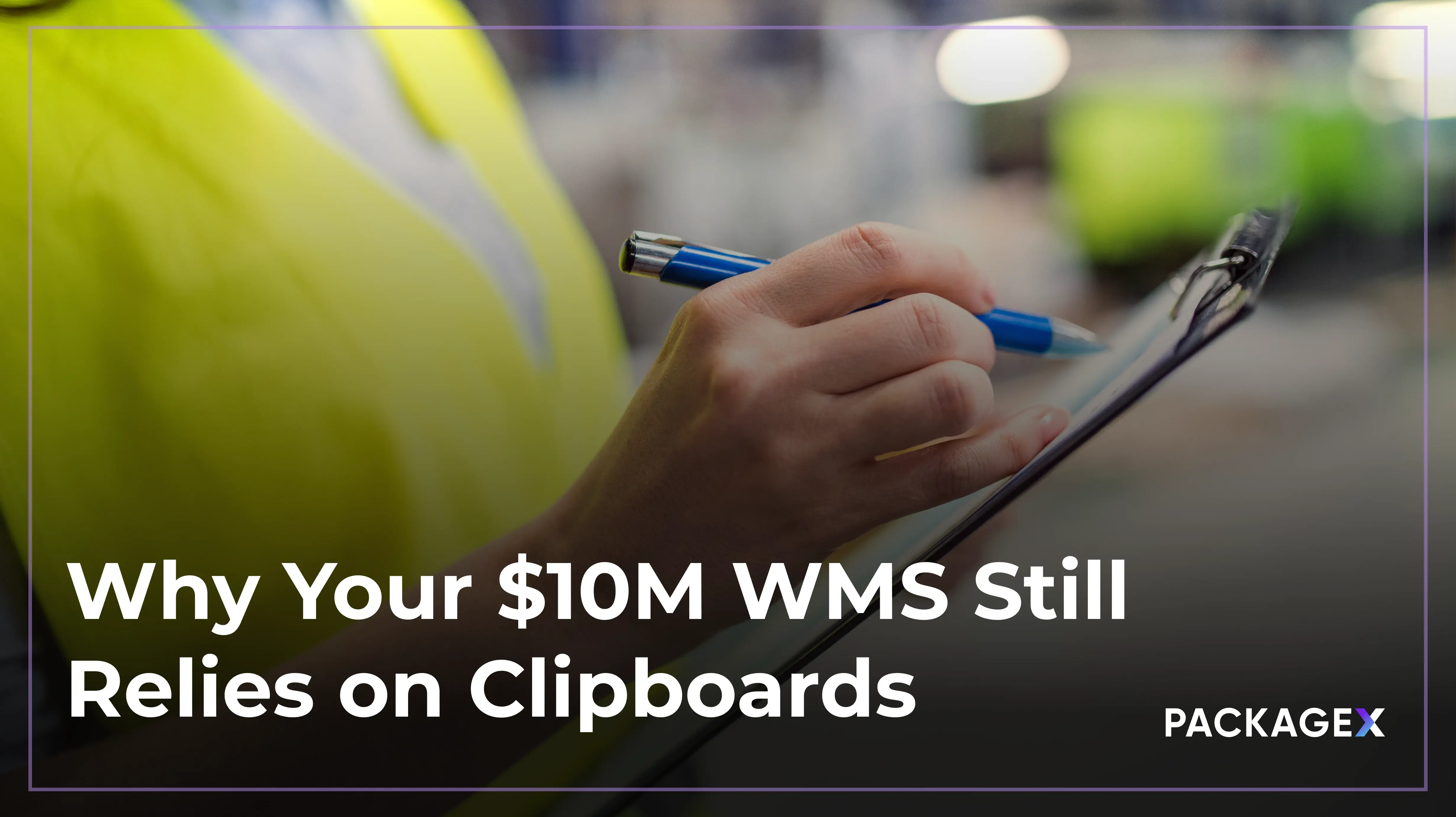Blockchain technology has emerged as a transformative force across various industries, with logistics standing at the forefront of its revolutionary impact. This groundbreaking technology is reshaping the landscape of supply chain management by bolstering transparency, fortifying security measures, and optimizing operational efficiency.
In this article, we'll delve into the evolution of blockchain in logistics, highlight essential components of a blockchain-enabled supply chain, showcase practical applications in logistics, and break down the business case for adopting and integrating blockchain into current operations.
Evolution of blockchain in logistics
Initial adoption
Blockchain initially gained momentum in logistics due to its inherent potential in fostering transparency and traceability within supply chains. Companies swiftly recognized the technology's capability to create immutable records of transactions and the movement of goods, thereby enhancing the transparency and authenticity of data.
This early adoption validated blockchain's role in securing data and thwarting risks associated with fraud, counterfeiting, and unauthorized modifications within the supply chain. It laid the foundation for blockchain as a pivotal technology, enabling trust and transparency among diverse stakeholders in logistics.
Expansion into advanced applications
As blockchain technology matured, its applications in logistics expanded beyond mere traceability and transparency.
- Supply chain visibility: Blockchain facilitates end-to-end visibility by recording and securely storing every transaction or movement of products across the supply chain. This enhanced visibility empowers stakeholders to monitor items in real time, thus reducing delays and optimizing inventory management.
- Smart contracts and automation: Smart contracts, powered by blockchain, automate and enforce predefined contractual agreements between parties. In logistics, smart contracts streamline processes such as payments, customs clearance, and compliance, thereby reducing paperwork and enhancing operational efficiency.
- Secured data sharing: Blockchain ensures secure data sharing among supply chain partners while preserving data integrity. This feature significantly reduces the risk of data breaches and unauthorized access, fostering secure collaboration within the logistics ecosystem.
Components of blockchain in logistics
Component #1: Blockchain networks
Blockchain networks serve as the fundamental architecture of a blockchain-enabled logistics ecosystem. These networks comprise decentralized and distributed ledgers that record transactions in a secure, transparent, and immutable manner.
Public blockchains, like Bitcoin and Ethereum, offer open access and transparency, while private and consortium blockchains restrict access to authorized participants, ensuring enhanced privacy and control over data.
Interoperability among these networks is crucial for seamless data exchange and collaboration between various entities within the logistics chain.
Component #2: Digital tokens and cryptocurrencies
Digital tokens and cryptocurrencies, native to blockchain networks, play a pivotal role in logistics by facilitating secure and efficient transactions.
Cryptocurrencies, such as Bitcoin and Ethereum, enable borderless and frictionless payments, eliminating intermediaries and reducing transaction costs. Digital tokens, representing physical assets or contractual agreements, streamline processes such as asset tracking, inventory management, and cross-border payments.
These digital assets, empowered by blockchain technology, offer a novel way to tokenize assets, enhancing liquidity and enabling new business models in logistics.
Component #3: Smart contracts and decentralized applications (DApps)
Smart contracts, or self-executing pieces of code stored on a blockchain, automate and enforce predefined contractual agreements between parties. In logistics, smart contracts streamline processes by automating tasks like payments upon delivery confirmation or triggering actions based on predefined conditions.
Decentralized Applications (DApps) built on blockchain networks provide innovative solutions for logistics operations. These applications leverage the decentralized nature of blockchain to offer secure and transparent services, ranging from supply chain tracking to inventory management.
Component #4: Data encryption and security protocols
Blockchain harnesses advanced cryptographic techniques to ensure data security and integrity within logistics operations.
Encryption mechanisms protect sensitive information, rendering it tamper-proof and accessible only to authorized parties. Additionally, consensus mechanisms within blockchain networks ensure agreement among network participants before validating and recording transactions, thereby preventing unauthorized alterations.
Real-world applications of blockchain in logistics
Maersk and IBM's TradeLens platform
Maersk and IBM collaborated to develop TradeLens, a blockchain-based shipping platform aiming to digitize global supply chains. TradeLens provides a transparent and secure platform for various stakeholders, including shippers, port operators, and customs authorities, to collaborate and share real-time shipping data.
The platform leverages blockchain's immutable ledger to create a single source of truth, enabling participants to track cargo, streamline documentation processes, and reduce delays.
IBM and Maersk Demo Blockchain Cross-Border Supply Chain Solution
Walmart's food traceability initiative
Walmart implemented blockchain technology to enhance food traceability in its supply chain. Leveraging blockchain, Walmart can trace the journey of food products from farm to store shelves, ensuring transparency and quick identification of product origins in case of recalls or quality issues.
This initiative significantly improves food safety, reduces the time taken for traceability tasks, and builds consumer confidence in the supply chain's integrity.
Food Safety and Blockchain: Trust Through Transparency
The business case for blockchain in logistics
The market for blockchain in logistics is witnessing substantial growth, with Verified Market Research estimating its value at $3 billion in 2020, projected to reach an astounding $1.6 trillion by 2028. This exponential growth underscores the industry's recognition of blockchain's transformative potential in optimizing logistics operations.
Considerations for implementing blockchain in logistics
How will blockchain technology enhance our supply chain's transparency and security?
Integrating blockchain technology into logistics guarantees enhanced transparency by maintaining an immutable ledger of transactions and movements. This ensures a secure and tamper-proof record of every interaction within the supply chain, minimizing the risk of fraud, errors, and unauthorized alterations.
What is the expected ROI and payback period for implementing blockchain solutions?
The ROI associated with blockchain implementation in logistics varies based on factors like scale, technology utilization, and specific applications. Typically, blockchain solutions offer cost savings through improved transparency, reduced administrative overheads, and minimized risks. The payback period varies, often ranging from a few months to a couple of years, depending on the achieved operational efficiencies and cost reductions.
How will blockchain seamlessly integrate with our existing systems and infrastructure?
Assessing compatibility between blockchain technology and current logistics systems is crucial. Seamless integration ensures uninterrupted data flow, enhances collaboration among stakeholders, and mitigates disruptions. Staff training and potential infrastructure upgrades should be considered for a smooth integration process.
Challenges with blockchain technology in logistics
There was a lot of hype around blockchain in the logistics space when it emerged as a potential solution for tracking movements within modern supply chains.
As we wrote about in a previous newsletter, organizations like the Blockchain in Transportation Alliance (BiTA) formed that aimed to fix tracking inefficiencies in logistics with distributed ledger technology. Members of BiTA included companies Anhesuer-Busch, Bridgestone, and Target, as well as logistics providers like FedEx, J.B. Hunt, and Werner.
In total, there were over 450 members of BiTA and the future of blockchain in logistics seemed bright. But there was one problem: 50% or more of industry professionals were still using pen and paper or spreadsheets to manage logistics and their supply chain.
For the same reason BITA failed as an organization, individual companies fail to effectively integrate blockchain technology into their logistics operations. There are also other challenges that mid to enterprise logistics companies face when adopting blockchain technology, including:
- Cost and complexity: Implementing blockchain technology can be expensive and complex. Mid to large-sized logistics companies often have established systems and processes that would need significant overhaul, resulting in high costs and operational disruptions.
- Lack of expertise: There's a scarcity of blockchain experts, and for many logistics companies, finding the right talent to implement and manage blockchain technology is a challenge.
- Scalability issues: Blockchain technology, particularly in its current forms, can have issues with scalability. Handling large volumes of transactions quickly and efficiently is critical for logistics companies, and blockchain might not always meet these demands.
- Regulatory uncertainty: The regulatory environment for blockchain is still evolving. Companies might be hesitant to adopt a technology that could face future regulatory hurdles.
{{returns-webinar}}
Navigating the integration of blockchain in logistics
For companies that decide to implement blockchain technology, there are some basic high-level steps to follow to increase the chances of success.
Step 1: Identify opportunities for blockchain integration
Initiating the integration process requires a thorough assessment of existing logistics operations. It involves examining various facets of the supply chain, from procurement and manufacturing to warehousing and distribution. This in-depth analysis helps identify potential areas where blockchain integration can significantly enhance transparency, traceability, and efficiency.
Step 2: Develop a strategic implementation plan
Developing a meticulous plan is crucial for a successful integration of blockchain technology into logistics. This strategic blueprint outlines specific objectives, defines the scope of implementation, and sets clear milestones and timelines aligned with broader business strategies.
The plan addresses operational challenges directly, ensuring a seamless integration of blockchain into existing workflows without disrupting ongoing operations. It delineates the selection criteria for appropriate blockchain solutions, whether it involves private, public, or consortium blockchains, based on the unique requirements identified during the analysis phase.
Step 3: Collaborate with blockchain solution providers
Forge strategic partnerships with reputable and experienced blockchain solution providers specialized in logistics. Collaborating with these experts is pivotal in selecting suitable technologies and executing effective integrations tailored to the operational requisites identified in the earlier stages.
These partnerships extend beyond merely selecting the technology. They involve close collaboration to customize the blockchain solution according to the specific needs of the logistics operations. The providers offer technical expertise, assist in designing and implementing blockchain protocols, and ensure seamless integration with existing systems and infrastructure.
Step 4: Pilot and scale
Implementing pilot projects serves as a critical phase in the integration process. These pilot initiatives allow logistics companies to test the selected blockchain solutions in controlled environments or specific segments of their operations. They offer invaluable insights, enabling necessary adjustments, enhancements, and optimizations before scaling up the technology across wider logistics operations.
This comprehensive exploration illustrates the substantial impact of blockchain technology on the logistics industry. Its evolution, components, applications, business case, considerations, and integration steps all play a crucial role in optimizing logistics operations. As logistics continues to evolve, the integration of blockchain stands as a pivotal step towards a more efficient and transparent supply chain ecosystem.




